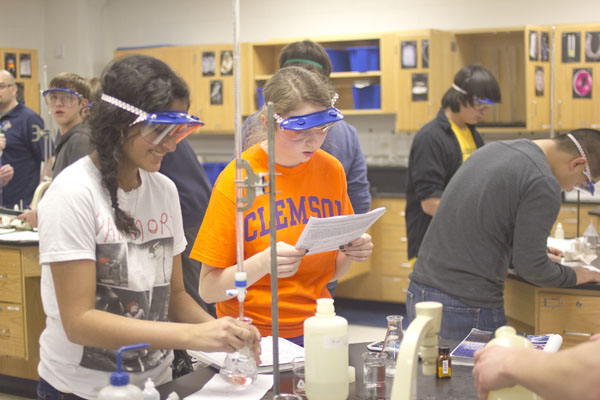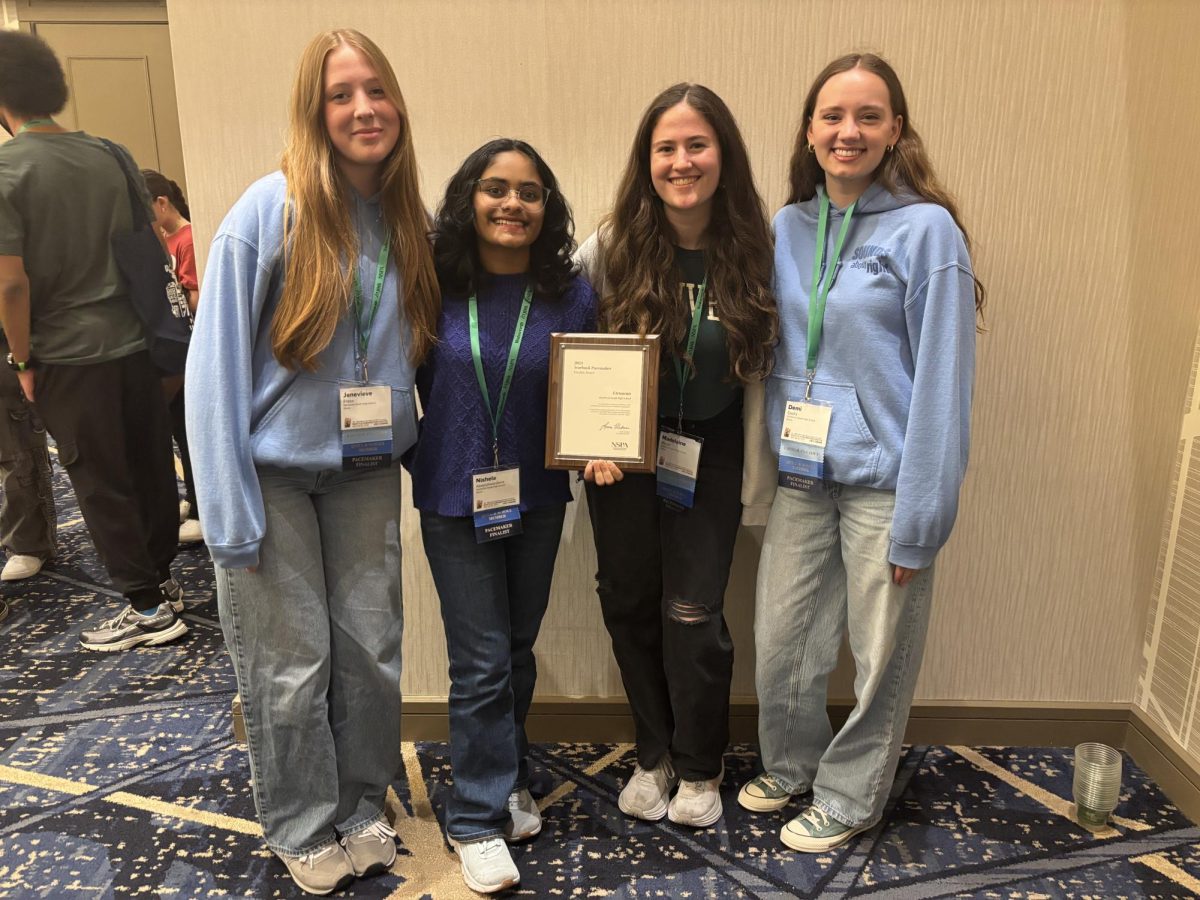Rising enrollment is putting increasing strain on courses taught in specialty classrooms, according to South Principal Dr. Brian Wegley.
Courses that require the use of specialized rooms –such as those in the Applied Technology, Family and Consumer Science, and Science Departments– may soon fill up, forcing these departments to turn students away, Wegley said.
Dawn Hall, instructional supervisor of the Applied Technology Department, explained that courses taught in specialty classrooms max out at a smaller number of students and cannot accommodate large increases in enrollment in the same ways other classrooms can. Constructing a specialty room is more expensive than adding a typical classroom, Hall said.
“The result of that means that, somewhere in this growth phase, we’re going to start limiting access to students to these types of [specialized] classes,” Hall said. “So you know, some difficult questions come up: how do we select students for those classes?”
A prospective response to limited class sizes could be to work with guidance counselors to connect students with an early passion for a certain field of study before opening that course’s registration to all students. However, Hall also believes that signing up for an elective can be just as beneficial to students without an identified interest.
“The true values of taking an elective and exploring a passion […] are one of two things: you take it and decide it’s not for you, and that’s a valuable decision,” Hall said. “If we do that before you go to college, we have successfully supported you. “Even better is when a student says, ‘I never thought of that, but I just took this class and I fell in love with it.’ That’s what high school is about.”
Foods teacher Kelli McDonald said her foods classroom is already full, running eight periods a day. She feels that students who get turned away even for a year could lose their opportunity to recognize a passion.
Woodworking teacher Stephen Silca agrees that rising enrollment poses challenges. Silca said it raises concern about safety in the shop.
“My concerns would actually be related to […] storage, safety in the shop,” Silca said. “If all classes are full, packed at 24 which is our class cap, I’d be concerned about having that many people […]waiting for machines [and] not having as easy access to the shop.”
Jeff Rylander, instructional supervisor of the Science Department, said his biggest concern is running out of room in science labs. Citing his own research, Rylander said by the 2017-2018 school year the department will be operating at 103.3 percent capacity.
“A solution that is not acceptable is to teach science in a non-science lab,” Rylander said.
Students are also at a disadvantage when a class is taught in a lab of a different discipline, such as teaching Biology in a Chemistry classroom, because of the set-up and equipment specific to a course. When the department surpasses 90 percent capacity after the 2013-2014 school year, students and teachers will start feeling that impact, Rylander said.
Biology teacher Josh Koo said that he has already seen larger class sizes affecting student engagement.
“I have 23 and 18 [students] for [two of my classes, and then I have 28 and 28 [and the difference is] night and day,” Koo said. “It feels so limited [because] with a smaller class you feel like kids are more engaged.”
Koo believes that the quality of lab experiences will decrease because of difficulty coordinating with shared classrooms and lack of resources.
“I think what you’re going to see is [fewer] labs, which is I think is what [South teachers] pride ourselves in, that we do so many labs,” Koo said.
However, the switch to the block schedule will expand student opportunities to take elective and specialty classes in the 2014-2015 school year, according to Hall. Hall expects students that have an extra block in their day to take an extra class, which will result in higher numbers of students taking specialized elective courses.
“I think our upperclassmen are realizing this year as they’ve [registered for next year’s classes], there’s some more room in that schedule for them, and I’ve had so many students say to me, ‘I was able to take this and this [and] I still had room for an elective,’” Hall said.
The block schedule can also help alleviate the pressure on classrooms that are already full and constrained by space because of the rising enrollment, according to Rylander. Rylander said blocks will allow the science labs to be used for 100 percent of blocks, while now they’re fluctuating between 90 percent during periods one, two, and three, for example, and only 68 percent during lunch periods.






